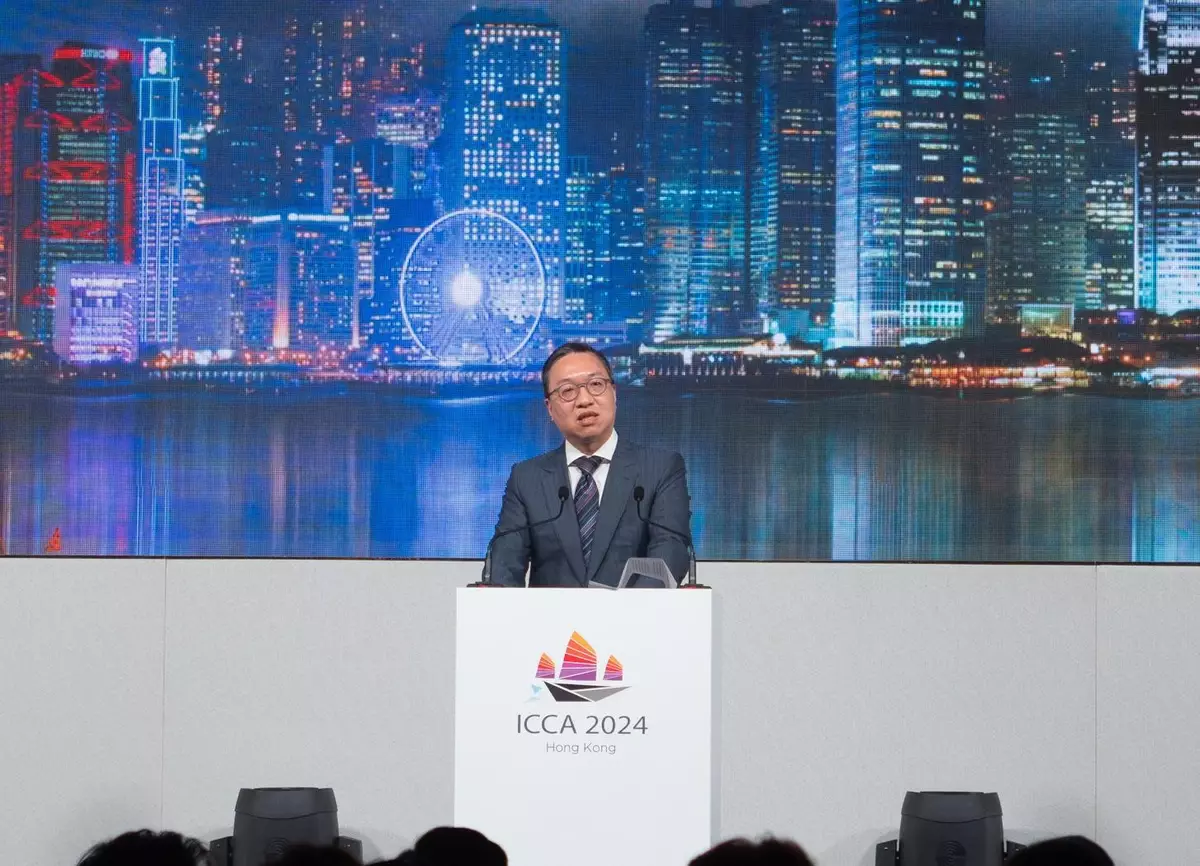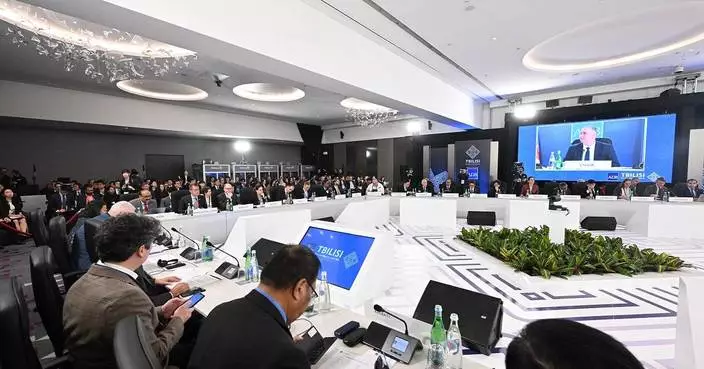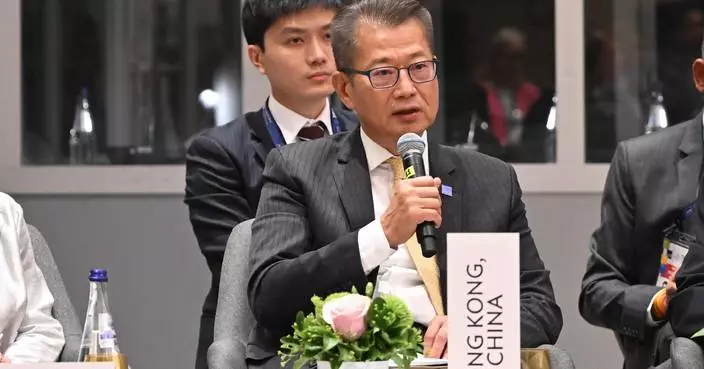Unlocking potential: enhancing physical education and arts education in schools
Following is a question by the Hon Stanley Ng and a written reply by the Secretary for Education, Dr Choi Yuk-lin, in the Legislative Council today (April 24):
It has been reported that according to the figures from the Education Bureau, a total of 31 suspected fatal student suicide cases were recorded from January to November last year, which was the highest in the past five years, and even represented an increase of more than one-fold as compared to the 14 cases in the whole year of 2018. There are views that while robust Physical Education (PE) and Arts Education (AE) are conducive to the physical and mental health of primary and secondary students, there is still much room for improvement in PE and AE locally. In this connection, will the Government inform this Council:
(1) whether the relevant government departments will review the overall effectiveness of local PE and AE; if so, of the details (including the method and mechanism of the review, as well as the specific timetable); if not, the reasons for that;
(2) whether the relevant government departments will conduct a survey based on the situation of all students in Hong Kong to make an analysis of the number of PE and AE lessons as well as the time for extra-curricular activities needed in a week for most students in order to relieve their stress and enable them to keep a healthy body, and based on the outcome of the analysis, set indicators for implementation in all schools in Hong Kong; if not, of the reasons for that; and
(3) as it is learnt that the Education Bureau of Shenzhen Municipalityhas put into practice since January 1 this year the Implementation Opinions of Shenzhen on Strengthening and Improving the Work on Physical Exercise in Schools, which proposes that schools offering compulsory education should provide one PE lesson per day, while senior secondary schools (including secondary vocational schools) should provide three PE lessons per week, and that PE activities during recess in primary and secondary schools should last no less than 30 minutes per day, whether the relevant government departments will consider drawing reference from the practices in the Shenzhen Municipality and require schools to provide one PE lesson per day and incorporate activities such as physical activities between lessons, and require that activities between lessons should last no less than 30 minutes, so as to increase the time students spend on exercise every day?
Reply:
President,
The Education Bureau (EDB) has attached great importance to students' physical and mental well-being. Establishing a healthy lifestyle is one of the seven learning goals of the school curriculum and relevant learning elements have been integrated into some subjects. The EDB has all along been committed to supporting schools in the promotion of school Physical Education (PE) and Arts Education (AE) through the life-wide learning approach, including providing curriculum guides, developing learning and teaching resources, offering training for teachers, and organising territory-wide physical and aesthetic learning activities or assisting schools in flexibly arranging activities, fully supporting schools in planning and implementing PE and AE within and beyond the classroom. The EDB's strategies to support schools in the implementation of PE and AE and the related details are set out in Paper No. CB(4)123/2024(03) of the Legislative Council Panel on Education dated February 2, 2024.
Our reply to the question raised by the Hon Stanley Ng is as follows:
(1) and (2) In terms of curriculum, schools have to plan their PE and AE curricula according to the requirements in the respective curriculum guides, including the provision of PE, Music and Visual Arts lessons, taking into account their school contexts as well as the needs, interests and abilities of students, etc. Currently, primary and secondary schools should arrange at least two PE lessons per week (i.e. approximately 80 minutes per week) for students, while those taking the PE elective subject for the Hong Kong Diploma of Secondary Education have the opportunity to learn sports theory and engage in sports training for around 250 hours in total. As for AE, the Music and Visual Arts subjects are generally offered in schools. The respective curriculum guides of the two subjects specify that schools must arrange for students no less than 9 per cent of the lesson time (primary level), 8 per cent to 10 per cent of the lesson time (junior secondary level), 250 hours (as senior secondary elective subjects) and no less than 10 per cent of the lesson time at the senior secondary level for Other Learning Experiences related to arts. The EDB will review the implementation of the curriculum from time to time and update the relevant content in a timely manner to facilitate the development of school PE and AE through a life-wide learning approach.
The EDB announced the updated Primary Education Curriculum Guide in September 2022. Schools are encouraged to make good use of flexible lesson time and organise students' learning time within and beyond the classroom, thereby enriching their diverse learning experiences and promoting a balanced development. The EDB has also issued the circular titled "Developing an Active and Healthy Lifestyle Through Promoting Physical Activities" (Note 1) in February, 2024 to provide strategies, specific recommendations as well as information on relevant curriculum resources and support measures to schools, and guide students to integrate the habit of exercising into daily lives beyond PE lessons.
On the other hand, the EDB has been supporting or organising major PE and AE student activities to allow students with different talents and interests to unleash their potential. For instance, the EDB subsidises organisations such as the Schools Sports Federation of Hong Kong, China and the Hong Kong Schools Music and Speech Association to organise various primary and secondary inter-school sports competitions, music festival, speech festival and dance festival every year, among others. The EDB has also launched the "Active Students, Active People" Campaign (also known as "ASAP" Campaign) and MVPA60 (Note 2) Award Scheme to encourage students to develop a habit of regular participation in physical activities as soon as possible. Moreover, the EDB has been collaborating with various departments, tertiary institutions, organisations and groups to promote a variety of PE and AE activities. For instance, the Leisure and Cultural Services Department's (LCSD) School Sports Programme and iSmart Fitness Scheme have been well-received by schools, allowing students of primary, secondary and special schools in Hong Kong to participate regularly in diverse sports activities during leisure time, fostering a sporting culture on school campuses, developing an active and healthy lifestyle, enhancing the standard of sports performance among students, and helping identify student athletes with potential for further training. The scheme on A Journey on Learning the Arts for Senior Secondary Students launched by the EDB and supported by the LCSD and various arts groups aims at encouraging secondary school students to participate in and appreciate arts programmes in authentic contexts outside the classroom, including performances of Chinese and Western music, Chinese operas, dramas and dances as well as visual arts exhibitions and film shows. Some of these programmes also include activities such as guided tours or seminars.
Different departments of the EDB regularly review the implementation and effectiveness of the PE and AE curricula in schools through inspections, curriculum visits and school visits, looking into aspects including whether the PE and AE curriculum guides have been implemented effectively with a view to helping students acquire relevant knowledge, generic skills, values and attitudes, and providing feedback to schools in a timely manner.
Schools are generally making good use of in-house and external resources to arrange school PE and AE activities for students within and beyond the classroom according to their interests and abilities. For instance, having regard to school contexts, a variety of PE and AE activities may be arranged for students before morning assemblies, during recess or lunch break, and after school hours; organising PE and AE-related extra-curricular activities; conducting sports days, swimming galas, music competitions, school team and orchestra trainings; arranging students to participate in various off-campus PE and AE competitions and art appreciation, to increase opportunities for students to engage in PE and AE activities.
Rather than setting hard indicators, schools are currently allowed to plan the learning and teaching within and beyond the classroom flexibly according to their own circumstances so that schools can better cater for learner diversity and facilitate students' development needs as a whole. Such arrangement has been running smoothly and is widely supported by the educator sector.
On the other hand, to promote mental health in schools in a more comprehensive and systematic manner, the EDB has recently launchedthe 4Rs Mental Health Charter (the Charter) in April. It calls for all schools to join the Charter, thereby working together to set practical and feasible goals and take concrete actions to promote students' physical and psychological health. The 4Rs in the Charter cover four elements and objectives for promoting mental health, including "Rest", helping students cultivate healthy habits from an early age as well as including having enough rest, adequate sleep and leisure activities; and "Relaxation", teaching students to take the time to relax, take care of their mental health and practise self-compassion, as well as encouraging them to do more exercise, such as arranging morning exercises/exercises between lessons for students, providing appropriate sports equipment for students to use, and participating in different activities under the EDB's ASAP Campaign, to cultivate the habit of regular exercise among students. We firmly believe that schools participating in the Charter, through implementing various measures and organising activities for the promotion of student mental health, will help students develop healthy living habits, provide more opportunities for them to relax and reduce stress, help them build positive interpersonal relationships, and enhance their well-being and resilience, thereby enhancing an overall healthy culture in schools.
(3) The education systems, curriculum frameworks, teaching and assessment policies in different regions are developed based on factors such as their unique social culture, background, physical environment, history and economy. In formulating the PE curriculum in Hong Kong, the EDB and the Curriculum Development Council have taken into account students' development needs as a whole and have sought to balance the diverse expectations of Hong Kong society regarding student learning. Currently, primary and secondary schools are providing at least two PE lessons per week for students in accordance with the curriculum guides and, through a wide range of physical activities, foster students' interest in sports, develop their motor skills and improve their physical fitness. These initiatives aim to develop students' habit of doing regular exercise and cultivate their positive values and attitudes.
To effectively increase students' physical activity level, offering subject lessons alone is not adequate. In fact, many schools currently make arrangements for students to participate in different types and levels of physical activities within and beyond the classroom apart from PE lessons by, for example, arranging morning exercise/exercise between class periods before, during and after school, and setting up an exercise corner during recess/lunch break. The EDB has issued the EDBC No. 5/2024 titled "Developing an Active and Healthy Lifestyle Through Promoting Physical Activities" in February 2024 to provide strategies, specific recommendations as well as information on relevant curriculum resources and support measures to schools to help increase students' physical activity level, with a view to achieving the World Health Organization's recommendation that children and adolescents aged 5 to 17 should accumulate at least an average of 60 minutes daily of moderate- to vigorous-intensity physical activities (i.e. MVPA60) across the week as well as the direction for the development of the PE curriculum. Besides, in line with the development of the PE curriculum, the EDB provides a one-off grant of $150,000 (Note 3) for each public sector school and schools under the Direct Subsidy Scheme in the 2023/24 school year. Schools may deploy the grant to organise or subsidise students to participate in diversified PE activities, purchase or upgrade PE/sports equipment in schools, etc, to create a better sports ambience and further promote MVPA60, thereby increasing the daily exercise time of students and helping them develop a healthy lifestyle.
Note 1: applications.edb.gov.hk/circular/upload/EDBC/EDBC24005E.pdf
Note 2: An accumulation of at least an average of 60 minutes daily of moderate- to vigorous-intensity physical activities across the week
Note 3: applications.edb.gov.hk/circular/upload/EDBCM/EDBCM24073e.pdf

Source: AI-generated images








